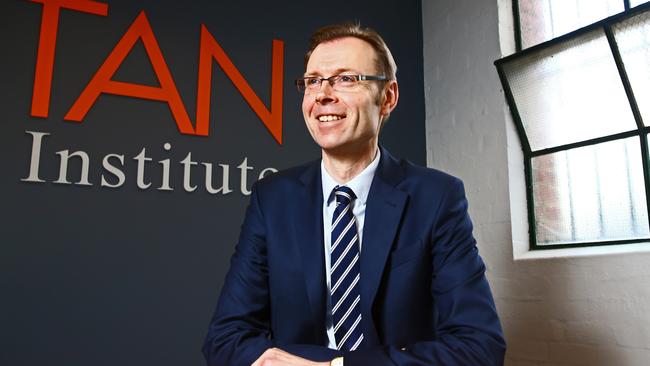Death tax: scramble to save HECS leads to estates of the dead
The government is working to shore up Senate crossbench support to get its Higher Education Support bill passed.

While the government works to shore up Senate crossbench support to get its Higher Education Support bill passed and claw back some of the outstanding billions of HECS and HELP debt, a pair of opposition backbenchers has come up with an alternative plan.
The backbenchers, Labor MP Julian Hill and Liberal MP Ben Morton, plan to work together on a proposal that would permit collecting HECS and HELP debt from the estates of the dead.
There is widespread agreement that the escalating debt, which has increased from $25 billion to $48bn in the past four years, must be reined in. Yet the backbenchers’ so-called “death tax” — which could easily become the target of a scare campaign — has not been endorsed by either major party.
The backbenchers plan to get a policy costed and then build cross-party support to avert a potential scare campaign. About 23 per cent of one-time students never repay their HECS or HELP debts.
The Higher Education Support bill lowers the minimum repayment threshold from $55,874 to $44,999 and replaces the other repayment thresholds with new ones, as well as indexing repayment thresholds to the consumer price index rather than to average weekly earnings.
It also includes a refreshable cap, so students who have repaid an amount of debt can again borrow up to a maximum limit.
Grattan Institute higher education program director Andrew Norton, who in the past has suggested a “death tax”would be a fair way of recouping the outstanding debt, said the way the government bill’s upper payment thresholds were constituted meant there would be a lot of graduates who will pay less in any given year than they do now.
“We actually think that’s a mistake,” he said. “It means the total increase in repayments from the bill is likely to be extremely small, and it may well not improve the overall non-repayment issue.”
He noted though, that although the Grattan Institute had reservations about the bill, it was difficult to calculate exactly how it would play out in its entirety.
Crossbenchers are currently split on the amended bill, which the government hopes to bring before the Senate next month.
The nine Greens senators and independent senator Steve Martin flatly oppose it, independent Fraser Anning supports it, and others potentially support the proposal, while demanding certain amendments.
At the same time, neither Cory Bernardi, the sole Australian Conservatives senator, nor independent senator Tim Storer have taken a position on the bill.
Pauline Hanson’s One Nation party’s three senators support the government’s general idea of lowering the repayment threshold, but the party wants it lowered even further.
“I support the HECS program; however, I intend on putting up an amendment which would see graduates start repaying their student loans after earning $30,000 or more at a rate of 1 per cent,” said party leader Pauline Hanson.
“HECS was introduced to give students from all financial backgrounds an opportunity to get a higher education, but that system cannot continue to be abused.”
The two Nick Xenophon Team senators were “broadly supportive” of the bill, said party MP Rebekha Sharkie, adding that negotiations were under way with Education Minister Simon Birmingham.
The party wants the government to make $8 million available for “entrepreneurial projects”, particularly in South Australia.
For his part, David Leyonhjelm, the sole senator of the Liberal Democratic party, would like the 20 or 25 per cent loan fee now paid by all private university students and vocational education and training students to be abolished, and replaced by a 15 per cent loan fee levied on all tertiary students, public and private. This measure would be revenue-neutral, according to his party.
Derryn Hinch, the senator representing Derryn Hinch’s Justice Party, has proposed an amendment that would increase the repayment threshold from the government’s proposed level of $44,999 to $50,000.



To join the conversation, please log in. Don't have an account? Register
Join the conversation, you are commenting as Logout